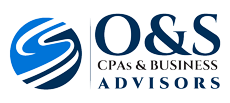 Whether your organization is a not-for-profit or a small business, cash is one of your most valuable assets. It should be safeguarded by establishing internal controls to prevent fraud and identify errors. However, in small organizations, this may be a challenge due to limited resources for the following reasons:
Whether your organization is a not-for-profit or a small business, cash is one of your most valuable assets. It should be safeguarded by establishing internal controls to prevent fraud and identify errors. However, in small organizations, this may be a challenge due to limited resources for the following reasons:
- Hiring employees with the appropriate skillsets and experience to perform their responsibilities can be costly.
For example hiring an accounting manager or CFO to prepare, organize, review, or interpret the financial reports versus hiring a bookkeeper for data entry is much more expensive. To reduce expenses, the more senior role may be outsourced, and services can be provided on a periodic basis, and in-house training provided to the lower level staff as needed. Having a third-party review financials with the proper skillset and experience, can help identify high risk areas for error and provide an added layer of independence, without the costs associated with a full-time employee.
- Hiring enough people to ensure the proper segregation of duties.
There are actually some controls, which may be implemented with two people. Ideally, the responsibilities of receiving payments, disbursing funds, and recording transactions should be separated, and best practice being a minimum of three people. Some of these responsibilities may also be performed by an outside accounting group.
- Purchasing and implementing a sophisticated accounting or security system, with automated controls.
As an alternative, you can implement a simple accounting system with the following:
-
- An alert for duplicate invoice numbers.
- By adjusting default settings for user rights. A password at a minimum should be required to log-on to computers or the accounting system application, and settings on the computer to auto-lock when idle.
- Physical locks may also be considered for rooms with computers or cabinets with sensitive records.
Even with limited resources, a small organization can implement some of the following low-cost basic policies and procedures to prevent embezzlement and misappropriation of cash:
| Description of Policy or Procedure | Why? | |
|
Person who prepares the bank deposit slips, authorizes purchases, approves disbursements, or signs checks should not:
|
Deposits and checks could be taken or written without being recorded. If cash is not recorded, management would not be aware of the missing inflow or outflow of cash. For example, a person could write a check to themselves, but record it as being a payment to another vendor. | |
| Management reviews accounts receivable and payables aging along with budget vs actual reports regularly. |
Aging accounts receivable can indicate possible errors in applying payments to customer accounts or uncollectability by a customer, which in turn lets management know they should adjust their expectations on the inflow of cash. On the other hand, aging payables can indicate a shortage of cash. Comparing the budget to actuals, can indicate if the organization’s current activity is inline our outside of expectations. |
|
|
Person who opens the mail or receive statements, should be different than the person who prepares the bank reconciliation. |
To ensure the authenticity of the bank statement used for the reconciliation. | |
| Require multiple bids to be submitted for purchases greater than a certain threshold prior to approval. |
Having multiple bids can ensure efficient use of funds and indicate proper vendor selection or possible conflict of interests. This policy is especially important in instances when employees have debit or credit cards. Efforts to prevent unnecessary expenses are less costly than recovering funds already spent. |
|
|
Prior to reimbursements, require approval of purchase and establish appropriate purchasing limits. In addition, requiring an invoice or proof of payment prior to being reimbursed. |
Prevents unallowable costs to be reimbursed and unauthorized disbursements. | |
|
Cash or checks received should be deposited at least weekly and in intact. |
The longer payments are held, the increase in risk of theft or loss. | |
|
Require two signatures on checks greater than a certain threshold. |
Prevents unnecessary significant purchases. |
|
|
Use pre-numbered checks and keep a record of the voided checks. |
Accounting for outstanding checks and voided checks allows management to be aware of how much cash is available in the bank if all written checks are to clear. |
|
|
Blank checks and undeposited checks received should be secured until deposited. |
Prevents checks to be taken or written without authorization. | |
|
Each user should have their own log-in and password. |
Allows auditability of the transactions in the accounting system and the ability to review transactions made by a particular user to determine if their access rights should be modified. |
In a small business, some may say, having one person do all administrative tasks along with all of the accounting may make processing transactions faster and “easier”. However, it also makes it easier for errors to go undetected, and for financial records to be inaccurate, and not reflect the actual financial health of the organization. Having controls and formal policies in place can also help keep honest people honest. Management should not consider whether their employees would commit fraud, but rather put the proper controls in place so the opportunity should never present itself. Even with limited resources, internal controls should be considered to protect those resources, especially in small organizations, as the impact could be far greater, and the money unrecoverable.
By Natalie T. Keam, CPA
